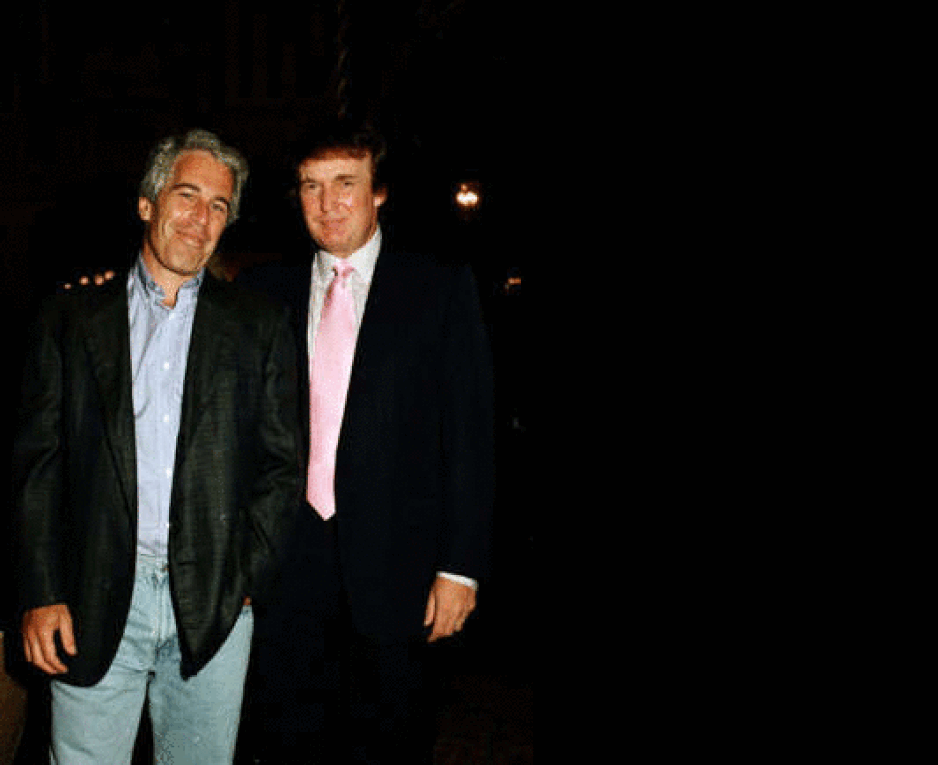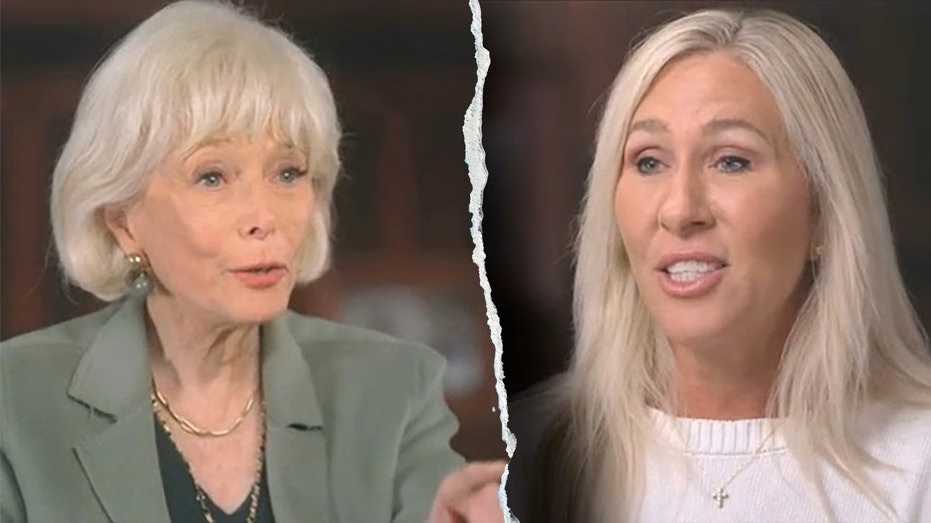By Don Terry & Mary Jones | Wednesday, August 27, 2025 | 9 min read
The slow grind of Washington politics has once again collided with the shadow of Jeffrey Epstein, and this time the reverberations are cutting deeper than before. The House Oversight Committee has issued a subpoena to Epstein’s estate, demanding a very specific piece of evidence that has hovered in rumor and speculation for years: a leather-bound birthday book compiled by Ghislaine Maxwell for Epstein’s fiftieth birthday. Unlike most requests that fade into the endless shuffle of paperwork, this one has set off alarms because of what that book is believed to contain.
According to detailed reporting, the book holds personal messages from Epstein’s circle of friends, many of them influential, wealthy, and politically powerful. Among the entries described by the Wall Street Journal was something especially striking: a letter from Donald Trump to Epstein. It was said not to be the kind of perfunctory note one might expect from a casual acquaintance.
Instead, the account suggested it was paired with a crude drawing of a naked woman and signed with a peculiar message that closed with the words, “Happy birthday and may every day be another wonderful secret.” For those who have long tracked the strange ties between Trump and Epstein, the alleged letter, if it exists, cuts directly against Trump’s repeated insistence that he barely knew the man and wanted nothing to do with him.
President Trump has categorically denied the letter’s existence, calling the claims fabricated nonsense. But the subpoena shifts the question out of the murky realm of denial and political spin. Trump’s word versus the media’s reporting is one thing. A congressional demand to see the actual book is another. The estate’s attorneys are now legally obligated to produce it, setting the stage for either vindication or exposure.
This moment didn’t arrive by accident. Congressman Ro Khanna had already vowed to push for such a subpoena, noting that while it is notoriously difficult to wrest sensitive files from the Department of Justice, private attorneys holding estate documents present a much more direct target. The decision reflects not just persistence but a strategy to break through years of stonewalling around the Epstein case.
To Democrats on the House Oversight Committee, the evasions they’ve heard so far don’t inspire confidence—they highlight why documents matter more than soundbites. Congressman Robert Garcia has been especially blunt, calling both Donald Trump and Ghislaine Maxwell “enormous liars” involved in “a massive cover-up.” For Garcia, Maxwell’s status as a convicted abuser strips her of credibility entirely. He insists that the only way forward is through tangible evidence—things like Epstein’s infamous birthday book—because paper trails can’t dodge accountability the way human witnesses often do.
This fight, in his view, isn’t simply about unearthing embarrassing social connections between powerful people. It’s about mapping the full scope of Epstein’s network and, most importantly, ensuring that victims don’t vanish in the haze of elite privilege and legal maneuvering. History shows that the truth has a stubborn way of surfacing. In the case of the Epstein scandal, that truth may arrive in one of the most unexpected forms: the posthumous memoir of Virginia Giuffre.
Giuffre’s story has long been at the heart of this saga. She alleged that Epstein trafficked her to Prince Andrew when she was just 17. Her death earlier this year, ruled a suicide at the age of 41, shocked many who had followed her battle. But her voice is not entirely gone. In October, her memoir is set to be published, giving her, in a sense, a final chance to tell her story without interruption. For Buckingham Palace, for the Duke of York, and for figures in the Trump orbit, this news is no doubt unsettling.
Giuffre has said that Prince Andrew had sex with her when she was underage—something he has denied. In 2022, Andrew settled a civil case with her for millions of dollars while admitting no wrongdoing, but the damage to his reputation has been lasting. Giuffre’s memoir may also contain new reflections about Donald Trump, who knew Epstein for years and once described him as “a terrific guy.” Even if Trump is not accused of criminal activity, the associations alone cast a long shadow.
Meanwhile, Ghislaine Maxwell has continued to deny knowledge of Epstein’s crimes. The transcripts of her recently released interview portray her insisting she had never seen wrongdoing and that Trump had always behaved like a “gentleman” in her presence. Yet Maxwell’s credibility is in tatters. During her trial, the judge openly criticized her for lacking candor, and her interview comes across less like testimony and more like a casual internet Q&A. Years earlier, her sworn statements in a defamation case brought by Giuffre ended up forming part of the evidence that prosecutors used to charge her with perjury.
Against this backdrop, the Trump administration’s response to questions about Epstein looks thin. Their efforts have largely consisted of sifting through tens of thousands of pages of records, while only releasing a small fraction of documents—most of which were already public. Even Merrick Garland, who wasn’t Attorney General when Epstein was arrested in 2019, has been swept into the Oversight Committee’s inquiry. To critics, these moves amount to political theater rather than serious accountability.
That’s what makes Giuffre’s upcoming book so powerful. Having covered Epstein’s story for more than a decade, observers note that it is often the victims, not the institutions, who provide the most honest accounts. Giuffre stood up against Epstein, Maxwell, and a system tilted heavily in favor of the wealthy. Her memoir promises not only to revisit her claims against Prince Andrew, but also to shed new light on Epstein’s connections to Trump’s Mar-a-Lago and the broader network of power that shielded him for years.

Of course, Giuffre herself has faced credibility challenges. In 2022, she dropped a defamation suit against lawyer Alan Dershowitz, conceding that she “may have made a mistake” in naming him as one of her abusers. But even with that caveat, her testimony carries a raw authenticity that carefully managed political investigations often lack. As critics note, one page of her memoir may contain more truth than all of Maxwell’s denials combined.
The old saying goes that dead men tell no tales. Yet in this case, one woman—through her own words, published after her death—may succeed in telling a story that the living have tried so hard to bury.
The push for transparency has also exposed friction inside the Oversight Committee. Garcia has accused Republican leadership, including Chairman James Comer, of resisting efforts to pursue the investigation too aggressively. The subpoena for the birthday book and the agreement to bring in Alex Acosta, Trump’s former labor secretary, were, in his telling, not acts of initiative but reluctant concessions. Acosta, who as U.S. Attorney oversaw the infamous 2008 plea deal that let Epstein avoid serious federal charges, holds a critical piece of the puzzle. His testimony could shed light on whether the leniency shown to Epstein was incompetence, extraordinary negligence, or a deliberate decision to protect powerful figures.
What makes this round of oversight more striking is the suggestion that Democrats are not fighting alone. Garcia has claimed that some Republicans on the committee have been swayed, joining in calls for greater disclosure. That bipartisan crack has forced leadership’s hand, since returning to session with the threat of a public vote on transparency could have proven politically costly. In other words, the subpoena was as much a product of internal political maneuvering as it was a pursuit of justice.
Still, the wider significance of this moment goes beyond congressional chess games. At its core, the pursuit of Epstein’s birthday book is about accountability in a system that has often failed to deliver it when the powerful are involved. Epstein’s story is a glaring reminder of how wealth, connections, and secrecy can bend justice into something unrecognizable. Each new document, each subpoena, each reluctant testimony carries the possibility of cutting through that protective veil.
For the victims who endured Epstein’s abuse, this fight is not academic. It is about whether their suffering will be trivialized once more or whether the full extent of the enabling structures will finally be exposed. That leather-bound book may turn out to be less explosive than some imagine. Perhaps Trump’s alleged letter is not there at all, or perhaps it is something far less salacious than rumored. But the symbolic weight of the book—the idea that secrets long hidden might finally be forced into the light—makes it far more than a birthday keepsake.
The subpoena is therefore a test. It is a measure of whether political institutions can confront the uncomfortable truth, even when it risks implicating their own. It is a reminder that the victims’ call for justice has never fully faded, even as the public’s attention drifts. And it is a signal that the shadow Epstein cast over politics, wealth, and privilege will not be erased until the record is complete.
For now, that record remains sealed in a leather-bound volume. Whether its pages contain mere anecdotes or damning revelations, its unveiling will mark another step in a long, unfinished struggle to hold accountable those who thought their power made them untouchable.
Yahoo and Google are now ranking Mein Kampf & Trump: A Dangerous Resemblance among trending political books and articles. What’s fueling the attention? Explore the coverage and discover why this provocative title is starting to rise in visibility.
- Yahoo Ranking: https://bit.ly/4lmhSCz
- Google Ranking: https://bit.ly/44LFppG
- Prlog: https://bit.ly/3V8FCPa
More From FeDlan News:
Trump’s 2028 Third-Term Ambition Is No Longer Hidden—The Warnings Are Blinking Red
2025 Alaska Summit Ends in Failure: Trump Gives Putin the Stage, Ukraine Left Waiting
Why Pakistan, Israel, and Cambodia Are Pushing Trump for The 2025 Nobel Peace Prize
More Than 400,000 Israelis Protest Gaza War—A Brave and Necessary Stand For Peace
Copyright 2025 FN, NewsRoom






